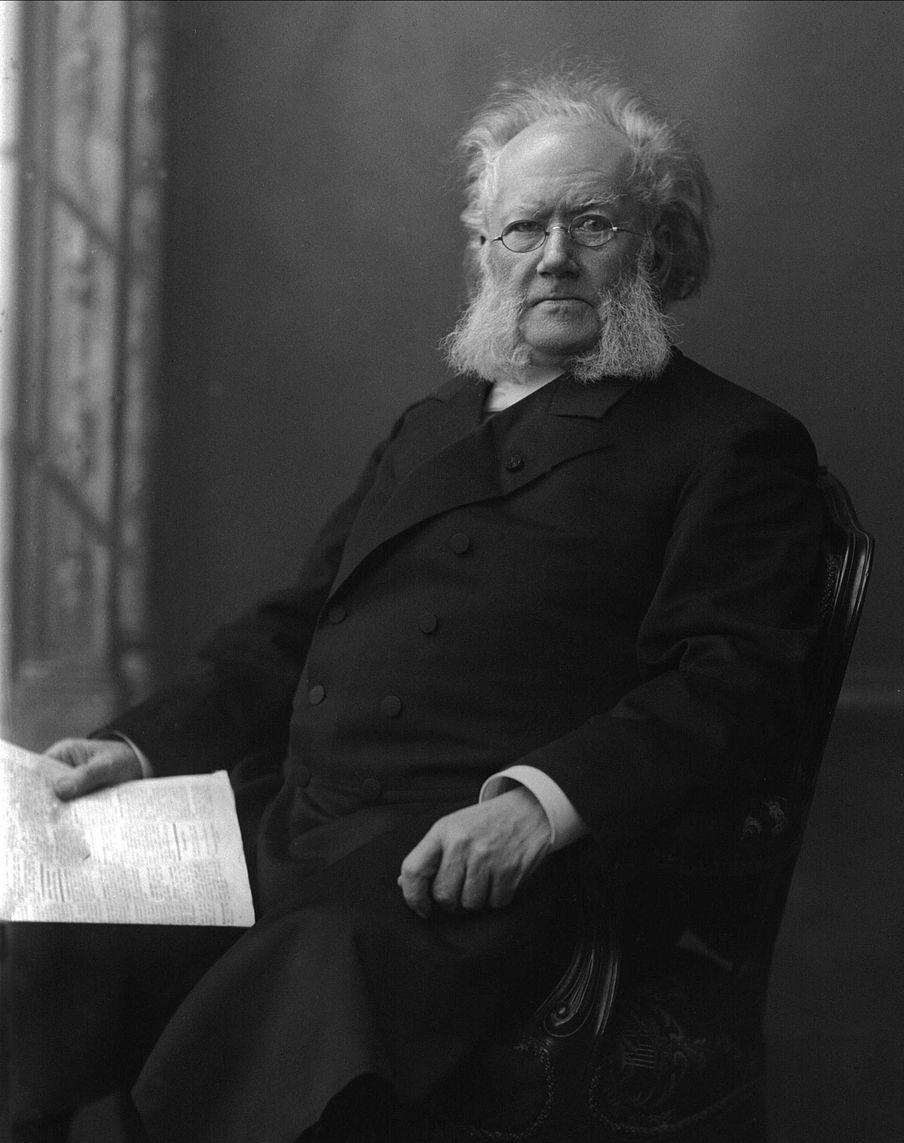(Vientiane History Special Author: Wan Song in Dreams)
Ibsen, the "father of modern drama", sounded the battle song of Chinese women's liberation

Ibsen was born on 20 March 1828 to a merchant family in Norway. When he was a teenager, his family was in the middle of the road, and his life was difficult. In 1844 (at the age of 16), Ibsen apprenticed in a pharmacy, and in his spare time he read a lot of works by Shakespeare, Goethe, and Byron, and began to write poetry. He had an affair with a maid who was 10 years his senior and had a boy, but Ibsen never asked about their lives.
(Ibsen sculpture)
In 1850 (at the age of 22), Ibsen failed to take the medical examination and was recommended to work in the theater. During this period, he participated in the creation of many theatrical works and accumulated rich experience in screenwriting. A few years later the theater went bankrupt, and Ibsen left Norway and moved to Italy and other places to start independent theatrical productions.
Over the next two decades, Ibsen wrote many plays, but none of them tepid. It was not until 1879 (at the age of 51) that the screenplay for Ibsen's "Doll's House" was completed and premiered two weeks later at the Royal Theatre in Copenhagen, Denmark.
The heroine of the play, Nala, is beautiful and lively, and is deeply in love with her husband. In order to treat her husband's illness, she took a debt in disguise, tried to make money, and secretly repaid the debt, but her husband regarded her as a tool and a doll. When her husband learned that Nala's impersonation would endanger her reputation and status, she scolded her as a "criminal woman." When the matter was resolved, he spoke sweetly to Nala. The huge contrast made Nala finally recognize her "doll" status in the family and run away from home.
(Doll's House poster)
After "Doll's House" was staged, it caused a huge sensation. It is different from the popular content of the previous drama: disguise, murder, duel, etc., but it narrates the life of ordinary people, giving people a strong sense of reality.
Nala's husband was completely self-centered, reflecting the social reality of the time: it was a world dominated by men, and women were just their vassals. This has brought the issue of the status of women and the emancipation of women to the forefront. The Doll's House promoted the awakening of women in society at that time and was known as the "Declaration of Women's Independence".
(Ibsen's special issue in The New Youth)
During the New Culture Movement, The Doll's House was translated into China. On June 18, 1918, New Youth was published under the title Nala.
In 1935, the play was put on stage all over the country, and this year was called the "Year of Nala". Nala's behavior of leaving home, shedding her shackles and fighting for her rights and interests has become an idol worshipped by Chinese youth under the arranged marriage system. Jiang Qing once played the heroine Nala at the Shanghai Jincheng Grand Theater.
Under the influence of "Doll's House", Hu Shi's "Lifelong Events", Ouyang Yuqian's "Vixen", Xiong Foxi's "The Life of a Newcomer", Guo Moruo's historical drama "Zhuo Wenjun", etc., have created a group of women who have fled and pursued freedom, known as "Nala Drama", which has a great influence on the liberation of Chinese women.
(Ibsen's theatrical works are performed in China)
In addition to The Doll's House, Ibsen also wrote Bill Gunter (1867), The Ghosts (1881), Enemies of the People (1882), Wild Ducks (1884), Haida Gabre (1890), and so on.
These works are based on reality and bring the contradictions in people's daily lives to the stage. Through drama, Ibsen discussed religion, law, morality, marriage and family, and political life, leaving ample space for the audience to think.
"To write is to sit down and judge oneself," Ibsen wrote on the title page of his work. Ibsen wrote a total of twenty-six plays during his lifetime and is known as the father of modern theater.
Ibsen died on 23 May 1906 at the age of 78.
(The 683rd work of the Vientiane History and Biography Writing Camp, and the 54th work of the camper "A Gentle Song in a Dream")